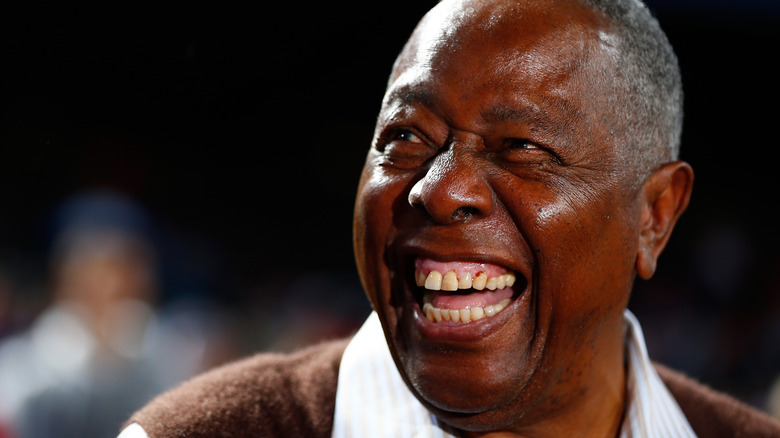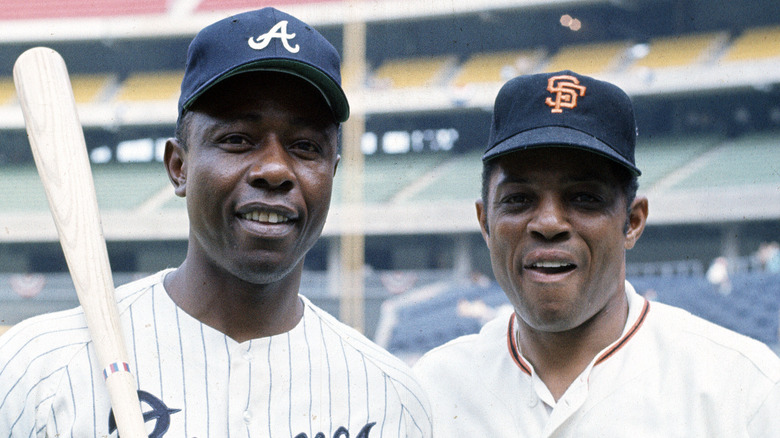The Real Reason Hank Aaron Didn't Team Up With Willie Mays
Henry Louis Aaron, the MLB Hall of Famer whose super slugging skills earned him the nickname "Hammerin' Hank," is undoubtedly one of baseball's all-time greats. Per the National Baseball Hall of Fame, he still holds the record for most runs batted in (2,297) as well as total number of bases (6,856). In contrast, Baseball Reference shows recent HoF inductee Derek Jeter, himself no slouch at the plate, with just 1,311 ribbies and 4,921 total bases. (Apologies to the arithmetic-averse, but baseball's always been a game of numbers.)
What Hank Aaron will forever be remembered for, however, is breaking Babe Ruth's long-held record of 714 career home runs. Hank hammered his 715th homer on April 8, 1974, and knocked 40 more balls quite literally out of the park before retiring. His record stood until 2007, at which time it was broken by Barry Bonds, although The New York Times notes that Bond's 756th homer will forever be branded with an asterisk due to his alleged steroid use.
Among the very few players whose name can stand up there alongside Aaron's is Willie Mays, the living legend MLB considers to be the greatest player to still walk the earth. While Mays may not have had Aaron's plate pyrotechnics, he was that rarity of rarities: a true five-tool player, and very likely the best center fielder of all time. Imagine what would have happened if the Say Hey Kid and Hammerin' Hank ever played on the same team. Believe it or not, this almost came to pass.
For a few more bucks, the Giants could have signed Aaron, too
Once upon a time, back in the bad old days when baseball (and just about everything else) was segregated, both Hank Aaron and Willie Mays played for the Negro Leagues: Mays for the Birmingham Barons (via MLB) and Aaron for the legendary Indianapolis Clowns (also via MLB). While Mays signed with the New York (later San Francisco) Giants once the big leagues finally decided to ditch the apartheid, Aaron instead signed with the Boston (Milwaukee, Atlanta) Braves. As it turns out, though, it was a near miss.
The Giants, it seems, had also made Aaron an offer to sign with them, but it was an offer he could -– and did –- refuse since the Braves were paying him $50 more per month. (Yes, even adjusted for inflation, Economic History shows that baseball salaries back then were much, much lower than they are today.) As Aaron admitted, many years down the road, "For the difference of $100 a month I could have been in the same outfield with Willie Mays." Now that would truly have been an (out)field of dreams!

